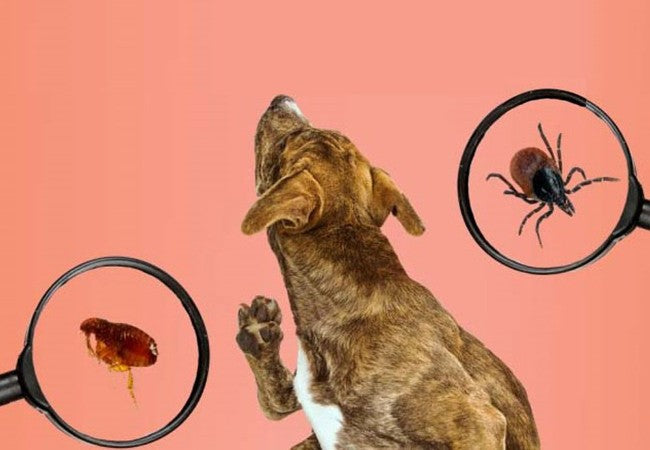Flea & Tick Treatments That Don’t Work 2025 Vet Insights 🐾

In this article
Flea & Tick Treatments That Don’t Work 2025 Vet Insights 🐾
By Dr. Duncan Houston BVSc
🧪 The Danger of “DIY” Flea Remedies
It’s tempting to try homegrown solutions—but many so-called natural treatments are both ineffective and unsafe.
🛑 11 Common Remedies That Don’t Work
- Dish detergent: Harsh on pet skin and only kills adult fleas—not eggs or larvae.
- Baking soda: Mythical drying effect—no scientific proof it kills fleas.
- Garlic: No defense against fleas—and toxic to pets.
- Apple cider vinegar: Ineffective and potentially irritating to skin.
- Alcohol: Dangerous—causes fleas to release toxins; must be used with tweezers carefully.
- Cedar oil: May repel some pests but can trigger skin/liver issues.
- Tea tree oil: Highly toxic to dogs and cats—even tiny amounts.
⚠️ Why They Fail
Most home remedies don’t interrupt the flea lifecycle—eggs, larvae, pupae remain in carpets, grass, bedding. Plus, some carry risk of toxicity to skin, organs, or nervous system.
🐶 Vet‑Recommended Prevention Methods
- 🩺 Prescription insecticides: spot-on treatments (e.g., fipronil, imidacloprid) or collars like Seresto—but be aware of environmental concerns.
- 💊 Isoxazoline pills: Bravecto, NexGard, Simparica provide effective full-cycle control—though potential neurologic side effects exist.
- 📅 Consistent timing prevents larvae resurgence.
🌿 Safe Environmental Practices
- 🧹 Vacuum frequently and wash pet bedding in hot water to disrupt flea lifecycle.
- 🏡 Yard care: mow grass and clear clutter—ditch DIY sprays that lack efficacy.
- 🌍 Environment-first: Reduce pesticide runoff to protect wildlife. Even effective products like fipronil and imidacloprid are harmful in water systems.
🔍 How to Choose Products Safely
- 🐾 Consider host species: no permethrin on cats; use vet-endorsed formulations only.
- 🧬 Screen for known sensitivities (e.g., MDR-1 gene, seizure history) before using isoxazolines.
- 👶 Puppies and kittens: follow age and weight guidelines for safe usage.
- 🚰 Environmental impact: choose products with minimal risk of water contamination, and always dispose responsibly.
🧸 Ask A Vet,
- 🩺 Ask A Vet: Personalized help choosing effective products, managing past side effects, and environmental guidance.
📅 Sample Flea‑Prevention Plan
| Month | Action |
|---|---|
| Jan | ISO tablet + bedding wash |
| Feb | Spot-on + yard trim |
| Mar | Review vet plan + vaccinate |
🎯 Final Takeaway
Home remedies for fleas may seem appealing—but they often fail and can harm your pet more than the pests. Vet-approved products combined with smart environmental control are the only reliable way to keep your pets safe. Always talk to your veterinarian before starting or skipping any treatments—and consider environmental safety too 🐾.
— Dr Duncan Houston, BVSc
Need tailored flea and tick prevention advice? Visit AskAVet.com or download the Ask A Vet app for expert guidance anytime.






